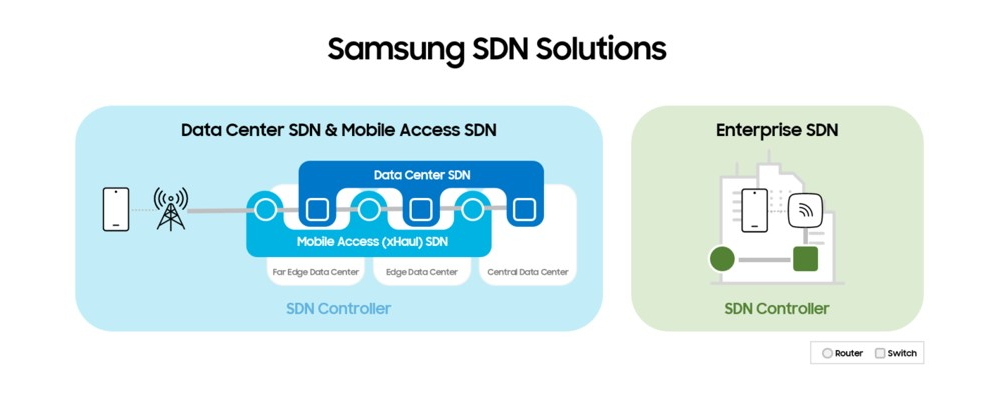ASIA ELECTRONICS INDUSTRYYOUR WINDOW TO SMART MANUFACTURING
Samsung speeds up shifts in network architecture to software-centric solutions
Aims to address private 5G network markets
With rapid shifts in network architecture to software-centric design away from hardware-based deployment, Samsung Electronics Co., Ltd. is expanding its portfolio of Software-Defined Networking, or SDN solutions.
The rollout will help mobile operators and enterprises to manage networks more easily and intelligently, supporting mobile access or xHaul that refers to fronthaul, mid-haul, and backhaul transport networks.
Samsung’s SDN portfolio already supports data center operations. With expanded capabilities, Samsung’s new SDN solutions will power enterprises in various sectors, including education, retail and energy. This full lineup of SDN will also support mobile access (xHaul), which refers to fronthaul, midhaul and backhaul transport networks.
SDN is a sort of software-based network architecture that controls a communication network centrally and intelligently using software solutions.
This centralized approach will offer greater automation and programmability in the entire network from access to the core, increasing operational efficiency.

With architectural shift from a hardware-based deployment to software-centric network design, SDN is highly secure, scalable and adaptable, especially helpful in advancing private networks.
Samsung’s SDN portfolio covers all layers of the SDN architecture including controllers, orchestrators, switches and routers.
What are mainly characteristic of Samsung’s SDN are that it is all-in-one service, open-source based, user-friendly, and capable of end-to-end network slicing.
For example, Samsung’s SDN can serve multiple purposes in a single box, including data center SDN, enterprise SDN and mobile access (xHaul) SDN.
It also enables user to build a user-friendly 3D-based UX design, featuring high accessibility and usability. Based on ONOS, or open network operating system, it can support various types of open interfaces to enable multi-vendor enabling users to seamlessly integrate with third party switches and routers.
On top of that, it can automate network slicing end-to-end, which will help fulfill service-level agreement (SLA) requirements, even at the transport level. Combined with its RAN and Core, Samsung’s SDN solution will enable mobile operators to offer optimal networks for various business models through company’s end-to-end network slicing capability.




